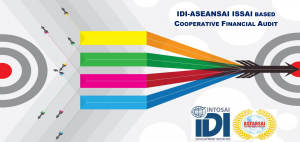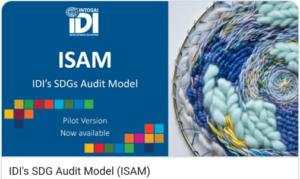Bangkok Metropolitan Administration (BMA) announced its plan to spend Bt 15.2 billion (USD 506.67 million) on the Super Skywalk projects, 50 km elevated walkway. Super Skywalk is a mega project to with the intention to reduce traffic jam also expect less air pollution. However, under the preventive environmental audit approach, the audit objectives were to evaluate the project preparation before initiating construction and to provide audit recommendations for project improvement.
Under the sustainable development, OAG Thailand concerns about environmental degradation from public works construction. Therefore, the preventive environmental audit focuses on sufficient information for decision making before initiating project. However, we set that the audit criteria of sufficient information should be consisted of the feasibility study report, Environmental Impact Assessment (EIA) report, and public hearing for stakeholders.
For audit methodologies, we reviewed and analyzed relevant documents. After that we interviewed BMA’s officers, academic experts and NGOs. Likewise, we set up a meeting with related party. Finally, we used the observation to prove our analysis.
We put our efforts to verify the accuracy of project and analyzed the feasibility of the project as well as to assess environmental issues under academic views and opinions. Despite insufficient data of the feasibility study getting from the BMA, we pointed out the risk of project failure.
The first audit finding involved with insufficient and imperfect information for decision making on the project investment. The audit found that there was no obligatory feasibility study and information to indicate the advantage taken or the opponents group. Moreover, Environmental Impact Assessment was conducted with the missing of information about the effect on unventilated air under the long routes of the Super Skywalk. However, our main recommendation was that BMA should review the projects under adequate information especially actual benefit and indirect cost that may rise from environmental impact.
Likewise, the second finding was about the complication of getting public opinion. We found that several channels to receive public opinion were too complicate. Such process is too complicate and cost to respondents. Hence, there was less response from the Bangkokian. Such process is too complicated and costly to respondents. Hence, there was less response from the Bangkokian. OAG recommended that BMA should provide more public opinion boxes in remote areas that people easy to access.
Finally, BMA decided to cancel the second phase of the Super Skywalk project cost Bt 10 billion (USD 334 million).
However, we concluded the lesson learned from this auditing that the audit could prevent the damage before initiating the project. Meanwhile, the environmental audit can be preventive audit especially when OAG keep its ears open wide to public criticism. Preventive audit can also raise the consciousness of environmental impact from ambiguous project. Lastly, the opinion of academic experts and environmentalists can ensure the clarity of environmental impact and the creditability of audit results.
*Dr. Sutthi Suntharanurak is the auditor of Research and Development Office, Office of the Auditor General of Thailand. He received the Ph.D. in Economics from School of Development Economics, National Institute Development Administration (NIDA). This paper was summarized version from full paper which presented at the 14th assembly meeting of the INTOSAI WGEA during 7-10 November 2011 in Buenos Aires, Argentina. The author would like to thank Mrs. Jaruwan Ruangswadipong, Mrs. Sirin Phankasem and Mr. Prajuck Boonyong for their openness, generosity and encouragement.

















